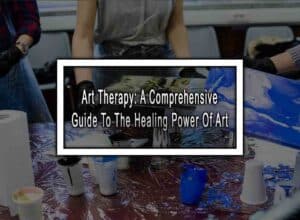Table of Contents
ToggleHere Are Some Benefits Of Acupressure
What Are The Benefits Of Acupressure? For centuries, acupressure has been a widely used traditional healing system in China and other parts of the world. In Chinese medicine, acupressure is often used in combination with other treatments such as acupuncture, herbal medicine, and cupping therapy. Through its gentle and targeted pressure on specific points of the body, acupressure can help alleviate stress, pain, and other health issues. In this article, we will discuss what acupressure is, how it works, the benefits of acupressure, and some common techniques.
What is Acupressure?
Acupressure is a non-invasive traditional healing system that stimulates the flow of energy, or Qi, in the body through gentle pressure on specific points or acupoints. Acupoints are located along the meridians or energy pathways that connect all parts of the body. According to traditional Chinese medicine, when Qi flows smoothly through the meridians, the body is in a state of balance and health. However, if Qi becomes blocked or imbalanced, it can lead to various health problems, such as pain, stiffness, fatigue, and digestive issues.
How does Acupressure work?
Acupressure works by applying gentle pressure on certain points of the body with fingers, thumbs, or other devices, such as acupressure balls, rollers, or mats. The pressure can be firm or light, depending on the individual’s needs and preferences. By applying pressure on the acupoints, acupressure can stimulate the nervous system, release tension, and promote the flow of Qi and blood throughout the body. This can help alleviate pain and other symptoms, boost the immune system, and improve overall well-being.
What Are The Benefits Of Acupressure
Acupressure has been used for thousands of years to treat a wide range of health problems and promote overall health and well-being. Here are some of the main benefits of acupressure:
Alleviates Pain
Benefits Of Acupressure help relieve pain caused by a variety of conditions, such as headaches, menstrual cramps, arthritis, back pain, neck pain, and sports injuries. By stimulating the release of endorphins, a natural painkiller, acupressure can reduce pain and improve mobility.
Relieves Stress and Anxiety
One of the benefits of acupressure it can help reduce stress and anxiety by activating the parasympathetic nervous system, which promotes relaxation and calmness. This can help lower blood pressure, reduce muscle tension, and improve sleep quality.
Boosts Immune System
Acupressure can stimulate the immune system by promoting the flow of Qi and blood throughout the body. This can help the body fight off infections, prevent illnesses, and promote overall health.
Improves Digestion
Some of the benefits of acupressure it can improve digestion by promoting the flow of Qi and blood to the digestive organs, such as the stomach, liver, and intestines. This can help alleviate digestive issues, such as bloating, constipation, and diarrhea.
Enhances Overall Well-being
Acupressure can promote overall well-being by balancing the flow of Qi and blood in the body. This can help improve energy levels, enhance mental clarity, and boost mood.
Common Acupressure Techniques
There are many different acupressure techniques, and they vary depending on the condition being treated and the individual’s needs. Here are some of the most commonly used acupressure techniques:
- Finger Pressure: This is the most basic form of acupressure, where gentle pressure is applied with the fingers or thumbs to specific acupoints on the body.
- Acupressure Ball or Rollers: These are small balls or rollers that can be used to apply gentle pressure to acupoints on the body. They can be used on the hands, feet, or back to relieve tension and promote relaxation.
- Acupressure Mats: These are mats that have thousands of plastic or metal spikes that stimulate the acupoints on the back. This can help relieve tension and pain, improve sleep quality, and promote overall well-being.
- Cupping: This is a traditional Chinese therapy that uses cups to create a suction effect on specific points of the body. It can help alleviate pain, reduce inflammation, and promote healing.
Conclusion
What Are The Benefits Of Acupressure? Acupressure is a safe and effective traditional healing system that can help alleviate pain, reduce stress, boost the immune system, and promote overall well-being. By stimulating the flow of Qi and blood in the body, acupressure can help restore balance and harmony to the body. If you are interested in trying acupressure, it is best to seek the guidance of a qualified practitioner who can assess your individual needs and provide personalized treatment. With regular practice, acupressure can help you achieve optimal health and vitality.
Acupressure FAQ
Here are the most common questions about what are the benefits of acupressure.
Is acupressure safe?
Yes, acupressure is generally considered safe when practiced by a trained practitioner. However, individuals with certain medical conditions should consult with their healthcare provider before undergoing acupressure.
Is acupressure painful?
The pressure applied during acupressure can feel uncomfortable or even painful at times, but it should not cause significant pain or injury.
What should I expect during an acupressure session?
During an acupressure session, the practitioner will apply pressure to specific points on your body, typically with their fingers or thumbs. You may experience some discomfort during the session, but it should not be unbearable.
How long does an acupressure session last?
Acupressure sessions usually last between 30 and 60 minutes.
How many acupressure sessions will I need?
The number of acupressure sessions needed depends on the individual and the condition being treated. Some people may see results after just one session, while others may need multiple sessions.
Can I do acupressure on myself?
Yes, acupressure can be done on oneself, but it’s important to learn the proper technique to avoid injury. It’s also recommended to seek guidance from a trained practitioner.
More like this: 5 Causes Of Xerostomia












